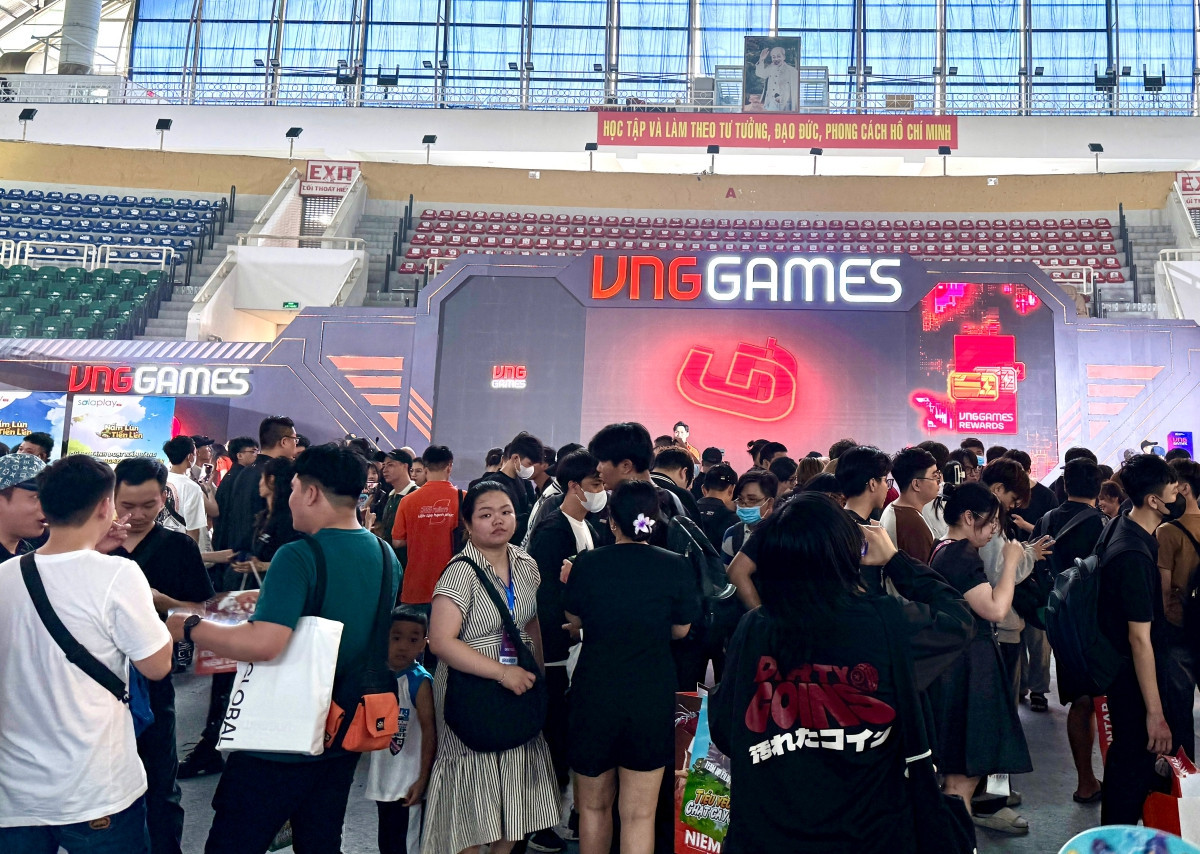
Do said at Vietnam GameVerse 2024, an event held on May 11-12 in HCM City, that in order to have revenue of $1 billion by 2030 as planned, it is necessary to have a firm foundation for the industry.
In 2023, the Ministry of Information and Communications (MIC) joined forces with education establishments to provide training for the game industry in two directions - cooperating with the Posts and Telecommunications Institute of Technology (PTIT) to provide full-time education at university level, and cooperating with Vietnam Multimedia Corporation (VTC) to provide training programs to workers.
The second direction is building new policies for the game industry. Previously, people thought that game development was the industry subject to restrictions in development and to luxury tax.
Do said MIC and game firms of the Vietnam Game Alliance has successfully persuaded the government not to impose luxury tax on games, and this has been included in the amended Tax Law.
MIC has pointed out that gaming is an industry which should be encouraged to develop, and needs to be allowed to enjoy investment incentives.
The government has not only excluded games from the list of industries subject to luxury tax, but has also requested MIC to design a strategy to develop the game industry with tax incentives.
The third foundation for the game industry development is the connection with foreign businesses and investors. Policymakers have recently succeeded in persuading partners such as Google and Meta to come to Vietnam GameVerse to see the development of the Vietnamese game market.
Fourth, MIC cooperated with many organizations and units to run media campaigns to eliminate preconceptions about the gaming industry. It is not addicting, but an industry which can create huge profits for the country. MIC has also applied effective measures to restrict the side effects of games.
Do stressed that Vietnam’s gaming industry is still in the very early stage of development, but the most difficult days are over and now is the time to gear up.
Emily Nguyen from Google Ads, Gaming and Apps in Vietnam also thinks Vietnam has great advantages to compete in the world game market.
Obvious changes have been seen in Vietnam’s gaming industry, from the government’s orientation to heightened awareness of agencies and units. This will help the gaming industry make great strides.
The representative from Google cited reports as saying that Vietnam is among the top 5 in game downloads in the world, and Vietnam has a high number of game developers (35,000 developers, approximate to China).
Vietnamese developers are young and qualified, especially in mathematics analysis and coding.
Another advantage is the reasonable game distribution cost. The low labor cost also helps create competitiveness.
Vietnam’s game firms are good at catching up with trends when launching games favored by the market. During the Covid-19 pandemic, for example, Vietnam’s game firms marketed games that satisfied entertainment demand at home, thus helping increase the number of downloads all over the globe.
According to Google, to successfully build a game ecosystem, Google needs to have major factors, including state support, and policies to attract talent and capital.
Of these, the most important factor is state support. In Turkey, a market valued at $1.8 billion, game developers can enjoy tax incentives, and studio startups enjoy tax exemption.
La Xuan Thang, distribution director of VNG Games, said Vietnam’s gaming industry has been growing rapidly which can be seen in statistics released by Google, but the life cycle of the products is short and Vietnam still doesn’t have products of international stature.
However, it is understandable. The gaming industry cannot produce large-scale companies like Riot and Tencent overnight, but needs time to grow. Vietnam GameVerse also can help develop the industry.
Meanwhile, game firms need to do better in order to join more deeply the global game export and supply chain.
Thang said that game firms all want to create high-quality products to make money, but their bigger aspiration is being recognized around the globe.
Le My